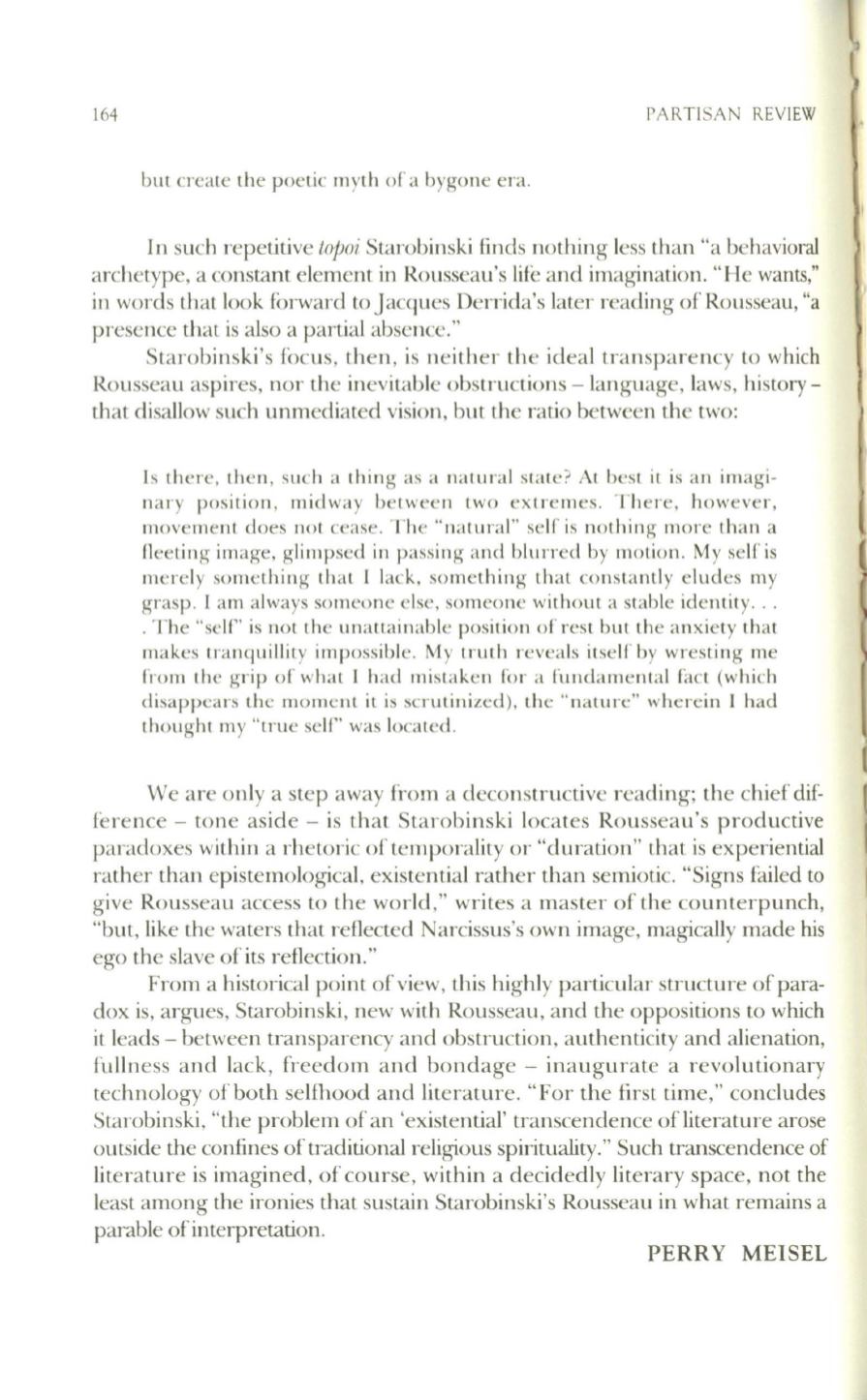
164
PARTISAN REVIEW
but create the poetic myth ora bygone era.
In such repetitive
topai
Starobinski finds nothing less than "a behavioral
archetype, a constant element in Rousseau's life and imagination. "He wants,"
in words that look forward to Jacques Den-ida's later reading of Rousseau, "a
presence that is also a partial absence."
Starobinski's focus, then, is neither the ideal transparency to which
Rousseau aspires, nor the inevitable obstructions - language, laws, history–
that disallow such unmediated vision, but the ratio between the two:
Is there, then, such a thing as a natural state? At best it is an imagi–
nal-y position, midway between two extremes. There, however,
movement does not cease. The "natural" self is nothing more than a
Oeeting image, glimpsed in passing and blurred by motion. My selfis
mel-ely something that I lack, something that constantly eludes my
grasp. I am always someone else, someone without a stable identity...
. The "seW is not the unattainable position of I-est but the anxiety that
makes tranquillity impossible. My truth reveals itself by wresting me
from the grip of what
I
had mistaken fOl- a fundamental fact (which
disappears the moment it is scrutinized), the "nature" wherein
I
had
thought my "true seW was located.
We are only a step away from a deconstructive reading; the chief dif–
ference - tone aside - is that Starobinski locates Rousseau's productive
paradoxes within a rhetoric of temporality or "duration" that is experiential
rather than epistemological, existential rather than semiotic. "Signs failed to
give Rousseau access to the world ," writes a master of the counterpunch,
"but, like the waters that reflected Narcissus's own image, magically made his
ego the slave of its reflection."
From a historical point of view, this highly particular structure of para–
dox is, argues, Starobinski, new with Rousseau, and the oppositions to which
it leads - between transparency and obstruction, authenticity and alienation,
fullness and lack, freedom and bondage - inaugurate a revolutionary
technology of both selrhood and literature. "For the tirst time," concludes
Starobinski, "the problem of an 'existential' transcendence of literature arose
outside the confines of traditional religious spirituality." Such transcendence of
literature is imagined, of course, within a decidedly literary space, not the
least among the ironies that sustain Starobinski's Rousseau in what remains a
parable of interpretation.
PERRY MEISEL


